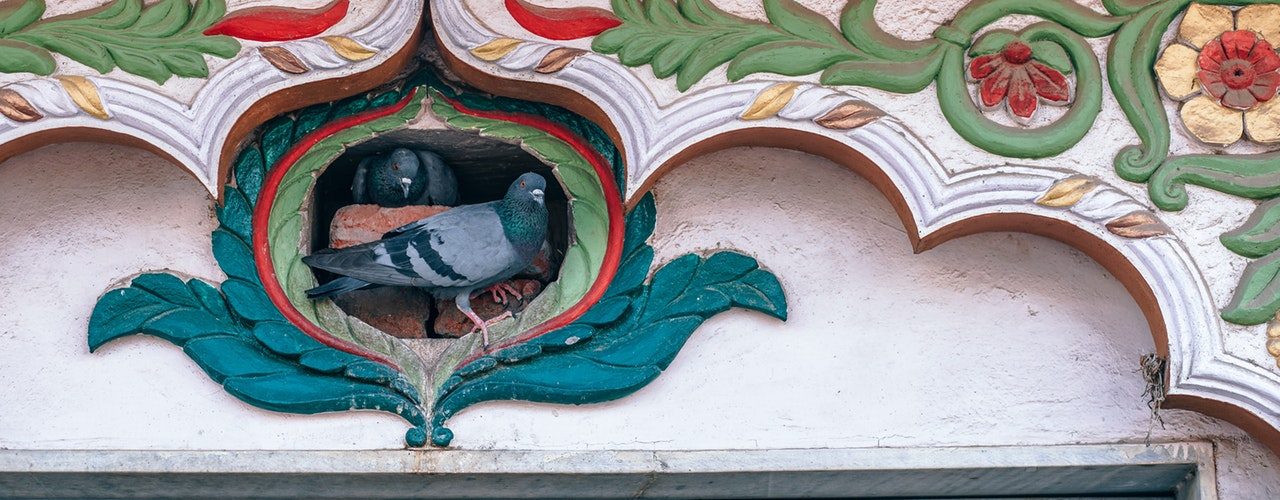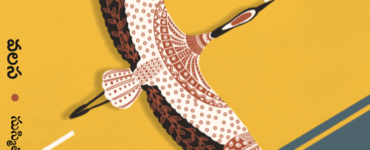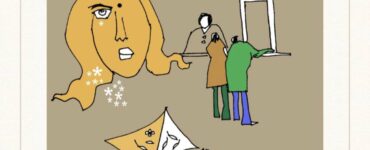A translation of the Telugu short story Munipalle Raju.
Would you like to remain a tree, oh dear tree? You may not be able to! The wicked would cut you to pieces. Better transform yourself into the handle of an axe. The wicked will then disturb you no more!”
A Sindhi Poet
“Naaraayana.. Naaraayanan,” chanted all the relatives in unison.
“Naaraayana … Naaraayana,” caught on our cousins, cognates and other distant relatives.
The whole place, which had been quiet for a while, was now suddenly permeated with grief. My maternal and paternal uncles and a couple of others picked up the four corners of the bier and lifted it to their shoulders.
Perhaps the chanting of the Name was the signal. How would I know? I could not even guess my own age at that stage of my life.
But, I could make it out to be the last journey of my father. My father’s elder brother appeared to lead the funeral procession ritualistically without looking back. He held the ends of the sling carrying the pot of live coals.
I wriggled out of the hands of Varaalakkayya and aunt Hanumaayamma, who were holding me back firmly till then, and joined the procession.
I could hear the exchanges, lamentations and screams from behind.
“Poor fellow… he is still so very young.”
“He was in fact playing in his father’s lap even yesterday morning.”
“What a fate. It would have been a bit better had his thread ceremony been performed.”
Amongst the many voices, aunt Hanumayamma’s agitation.
“Seshayyaa … why are you just watching… stop the boy… ayyo… he may end up scared.”
“What can this Seshayya do, he himself is a bundle of nerves.” Varaalakkayya’s concern.
Seshayya held me and stopped me midway. He was our share cropper. He used to make clay tops for me to play with daily.
“We should not be going to the funeral ground Chinnayya (young master).”
“Why not?”
“Ghosts and spirits roam around there.”
Even as Seshayya was saying this, I felt that somebody was whispering tenderly in my ears, “It’s a lie… It’s a lie.”
I looked around. Nothing was to be seen. I looked up towards the sky.
It was then that I saw the sprawling tree. Such a mighty tree in our village? I started wondering. It rustled. It showered its dry leaves on me as though to console me.
That was my first acquaintance with the tree.
The past is like mist, poets say. They say it melts back into oblivion. It is not so in my case. Even after such a long time I still remember that episode vividly. Whenever I think of it, it stands in front of me like an image in the mind that cannot be captured in words.
Kolli Seshayya was making clay tops and was indulging in all sorts of tricks to assuage my grief. But I kept looking at the tree. It even had aerial roots dropping on one side. Countless bird nests to the top most sprigs … chirping and cheeping the birds kept on casting their droppings. The droppings were falling straight into the tank alongside. How large was the tank! Tiny fish kept swimming towards droppings and swallowing them with relish. Birds on the tree fish in the pond and a toddy grove on the other side of the tank…
I could also see the crimson setting, sun across the toddy grove. In the sky, clouds were moving briskly,
Leaning against the tree… watching that marvel of nature when I dozed off, I did not know. By the time I rubbed my eyes and looked around, Seshayya was not there,
All our relatives, just back from the funeral of my father, were taking their ritual bath at the tank-side well.
The bairaagis camping in the math of Raavula Subbamma were soking rice over a fire made out of twigs and dry leaves they had gathered.
Bells were ringing in the choultry of Soodulagunta Kotayya, It appeared that a Guru of one of the village landlords was camping in choultry. Our people came looking for me, “Seshayya ,,, where is Seshayya…?”
“Must be enjoying a puff of ganja with those bairaagis.”
“Abandoned the child alone, crazy son of a whore!”
Perhaps I was not able to explain to them that I was not alone but in conversation with the tree, which I had continued even when I had dozed off, and so was not scared,
Some time later, during my childhood itself, Kolli Seshayya, my clay tops friend, actually joined the bairaagis and disappeared. I distinctly remember that his wife Rattamma and his aged mother Naagamma used to visit mother and wail loudly.
How often did I witness that grief and misery! How often did Rattamma embrace me and showed me the deep wounds in her heart without resorting to a thousand page commentary on it!
I used to cross over to the southern streets and by-lanes of the village, reach the tree at the northern end and sit under it silently.
“Seshayya does exist. He is in search of himself. He is roaming the caves and cliffs to get out of his own shadow.”
Would you believe that these words were uttered by the great tree? You won’t.
After school, instead of my engaging in games at home, Seshayya used to take me to play games around the great tree and perambulate it… used to seat me with the gosains of the math and make me listen to their tatwams (philosophical songs) … used to show me-from the above the steps of the choultry-the smoke rising over the funeral ground… used to walk me over he pathways around the toddy groove and the cactus clumps – I never discussed these things with anybody at home.
I used to wonder whether Seshayya-who acquainted me with the tree and the tree which acquainted me with the many living things around – were they not one and the same?
Rattanmma’s wound would heal up if only she could stand under the tree for a few minutes. But how do I convey this to her? Was possible for me to convey such a deep mystic idea in simple day day-to-day terms? I was but a child.
However, it became possible after twenty years, I was then working at a far away place, Rattamma got my mother to write a letter to me.
A sadhu had come from the North and was camping under the tree. He declared himself to be Seshayya. Except for his age, he was of the same appearance… with the same mole under the right ear… the same sunken eyes. He spoke a mixture of Telugu and Hindi.
The villagers were inducing him to renounce sanyaas and take back Rattamma. She subjected him to many tests. Her mother-in-law, Naagamma, had already passed away under the grief for her son. He recognised some of the villagers. And failed to recognise some others.
He was able to pin-point the exact corner of the house where Rattamma used to secretly keep the small earthern pot of coins. He was looking at Rattamma with anguish. Yet Rattamma was not very sure.. I was called on only to conduct the final tests.
The very next day of my arrival at the village, Rattamma took me to the sadhu. He was sitting under the tree in the lotus posture.
The moment I entered the shade of the tree, a dry twig fell on my head. A tiny twig. I looked up. The crows were cawing and flying away.
I offered the orange-given by mother-to the sadhu and stood in front of him. I looked straight into his eyes. No response. “Seshayya… who am I?”
A smile. I glanced at Rattamma. She looked at me. I picked up a lump of alluvial soil from the bank of the tank and gave it to him.
“Seshayya, Won’t you make a top for me?” Did he not understand? He stared at me in confusion. I explained in Hindi: “Lattoo … Lattoo banaavo Seshayya.” He did not react. The lump of earth remained in his hand. “Thief … Chor.”
The leaves of the tree started rusting. ‘Chor… Chor…!’
Leaving his kamandal behind, the sadhu took to his heels. I saw the village youth, who had been watching the drama till then, chasing with staves.
Fearing that Rattamma night react with loud lamentation, beat her chest and merge with nothingness by jumping into the tank, I stayed back.
But, she sat quietly on the jutting roots of the tree for a long time. Her eyes were not even moist. I then suddenly recollected the antecedents of the impostor. During my childhood, when Seshayya was still around, this fellow had camped at the math for some time.
He had made friends with Seshayya. They used to indulge in bouts of ganja together. I was mistaken to believe that he was looking at Rattamma with anguish. It was not anguish, but pure lust.
This memory flashed across my mind when I was perambulating the tree involuntarily. Was Seshayya still in search of himself? Or, had this impostor finished him off?
Who would heal this new wound in Rattamma? As I was contemplating this, Rattamma spoke.
“Chinnayya, would you light my pyre when I am gone?”
She is neither of my caste nor clan. Surprised, I looked at her. The tree had probably made her say that I could see her spirit. I said ‘yes’. At the same time, I expressed a doubt, “I may be at a far away place. How will I know?”
“You will somehow come to know of it, Chinnayya” she said rising.
I did get the call after two years. I was listening to a recorded talk of Jiddu Krishna Murthy in a friend’s house in a far away state that night. That LP was about the story of a tree on a river bank
On receiving the telegram, our duty officer rang up everywhere and finally located me. He read out the message to me over the telephone. I set out that very midnight.
I did not expect that Rattamma would cast away her body so soon; noticing so much clarity in her speech and sharpness in her sight how could I anticipate? Her body was, of course, a bit emaciated.
But, Rattamma’s words made it clear that what is apparent may not be true and what is hidden may be the real truth.
“So, you did come, Chinnayya. I knew you would.”
I attempted to assure her. She brushed that aside.
“I have come landed property… my own ‘woman’s property’. I have willed it to the school where you studied. I have left nothing for you.”
“Why do I need anything Rattamma? I am in a good job.”
“Don’t incur heavy expenditure or my last rites.”
“Don’t bring in the matters of money here. Let me know your last wish. I work near Kasi. Shall I immerse your aches in the Ganga?”
“No need Chinnayya. I like that tree a lot. And in case Seshayya returns at any time, look after him.”
“Certainly. He will be with me.”
I just played deaf to the murmurs of resentment of her brothers-in-law. She was cremated that evening. On the day of the collection of ashes I made oblong beds among the roots of the tree and deposited this great manure there. Though their silence spoke their minds, none of my relatives objected to this.
The birds on the tree and the fish in the pond must have observed this. The birds, which returned to their nests that evening, did not make any strange sounds which would have kindled grief in my heart. I waited till the moon rose and set off on my return journey the same night.
But, I forgot to narrate the story of the intervening period. The story of my growing association with the tree.
Within four years of my father’s demise, we found ourselves in a pathless desert. Our joint family had disintegrated. The burden of loans taken by father fell on us. Mother disposed off the lands to clear the debts.
Even close relatives started ignoring us. Mother started taking up odd jobs in the neighbouring houses. The high school campus to which had just been introduced and the tender friendships that were blossoming just then went out of my reach.
I took up the job of a coolie in a rice mill which had newly sprung up on the border of our village and the neighbouring Vellaturu.
There was nothing like daily wages or a monthly salary. My job was to collect brawn that piled up on one side and fill it up in the gunny bags. In return the farmers whose paddy was getting milled dropped a few fistfuls of rice in my basket.
But this very life of a labourer formed the basis for my daily interaction with the tree. While returning from the rice mill, I used to wash off the dust at the tank and sit serenely under the tree.
While departing, I used to gather a few dry twigs which used to supplement the dry paddy roots mother used to collect from the fields to make up the kitchen fire.
Did my association with the tree get limited to the dry twigs? Was it not an extension of my association with Seshayya? Such were the thoughts that came to me.
Numerous carts carrying countless passengers used to camp on the tank-bund in the shade of the tree. If they all were passengers moving with the tides of bliss and misery, with their own desires and passions-who am I?
Until then, I had sat in the lap of the tree with affection…without expecting anything in return. Would this twig-gathering activity affect that natural affinity? I stopped collecting twigs from that day.
I do not know how much older I had become in that single year but I noticed myself being engulfed by my thoughts … wave after wave.
Another remarkable thing happened under the very tree. I learned fasting.
On a mealless day… unaffected by thirst and hunger… in a cyclonic gale… in the devilish dance of rain… snugly sitting in the lap of the tree… listening to the faint sounds of the bhajans of the bairaagis… when I returned home, mother was full of fear and anxiety. “Gurunatham says that you are always sitting under that tree. Is that true?”
What could I tell her? Which mysterious yet fascinating experiences could I explain to her? Could I tell her that the woman who was on her way to a maternity home on a rainy day had the first glimpse of her new-born child under that tree? Could I tell her how furious I was with that tree on the day when the washerwoman Venkati ended her life there?
The ancient wisdom being imparted by the tree that I should become a part of the Invisible Matter is unfathomable even to me. What could I then say to mother? What could I? I didn’t say anything.
The aesthetic experience that I could not explain to mother, the essence of my feelings which I still feel helpless to put in words… ‘that’ came my way the very next day.
It was nearing dusk. A bullock cart stopped under the tree. People were moving towards the choultry. Having noticed some human presence, somebody came out with a request “Baaboo … where can I get some milk in this village?”
I came forward, “Do you have a vessel?”
“Yes. Take this money. God will bless you.”
“No need for money, sir.”
In a quarter of an hour, I returned with milk from Rattamma. “Everybody parts with what he has got and expects something in return. But you are not accepting anything. Who are you?” he persisted with his query.
At last, I narrated to him my story.
The labourer-phase of my life ended the next day. The student life sprouted again.
He took me to his place after obtaining a tearful nod from mother. I cleared the Benares Matric within a year and then entered college with a scholarship. Completed my F.A. and was midway through my graduation.
At that stage I got a couple of messages about the deteriorating condition of mother’s health. With that the student phase of my life took another turn. Since the time I had acquired the ability to fast under the tree, I had perhaps acquired the confidence to achieve any goal just with will power.
I decided not to heed anybody’s advice. I set myself a singular goal: that I should attend on mother and save her. I also had a second goal: to redeem my debt of that kindly gentleman who educated me. For this, I needed the blessings of Goddess Lakshmi. With an inhibitionless self-confidence, I set my foot in a new world.
I touched the feet of mother who had silently endured hardships and anguish-all alone.
Within a few days she recovered: as if her secret hopes which appeared to have dried up altogether-sprouted again.
That evening, I sat under the tree for a while. Though it was not autumn, surprisingly, I felt that the tree had showered dry leaves on me. I looked up. I immediately remembered my second goal.
“When are you going to redeem yourself of the debt to the one who gave you education? You may in fact clear his debt but can you treat his kindness as mere debt?” I got up wondering as to who had been shooting these questions at me.
When I reached home, I saw Rattamma chatting with mother.
“I have been waiting for you only. You know that Christian Father to whom I supply milk? There is a vacancy in their school. He asked me to tell you to apply.”
That was the time when our village Harijan colonies were transforming themselves into Christian folds, Tiny churches were springing up in all the villages.
Our village school was also established near the church. I joined that school as an untrained teacher. It was there I had my introduction to my colleague, Grace.
Grace Jakria was perhaps a little older than me. But she looked younger. Could human beings have so much of grace, health and such large beautiful eyes? I used to wonder. She was also an untrained teacher like me.
As she walked along with the majesty of a royal elephant with an umberella in hand-which was unusual for ladies of that time-the whole village used to stare at her in open-mouthed wonder. To avoid that embarrassment, she used to take a different route through the shrubs from her nearby village to the school. She followed the same route on return. I used to accompany her up to the village outskirts.
On the way we used to rest for a while under the tree. At times, I used to feel that I had the friendship of a person who was as beautiful as a graceful tree. I never observed her mind very closely. I used to feel that her every movement and every word had an inherent nobility and serenity about them.
But had she been sitting under the tree merely to enjoy that peace and music? It took me months to realise that she had been waiting for the pleasure of touch neither from the breeze nor from the rustling leaves nor the lotus stems in the pond nor the light of the distant stars nor the moon gradually filling the sky-but from me and me alone.
In the privacy of a lonely evening, she suddenly kissed me deeply. She sat in my lap.
“Won’t you convert to my religion? We shall get married, go for the teacher’s training and settle down with our jobs here” she said all this with great affection which overwhelmed me.
When I did not respond, she was discomfited. She stared into my eyes and said “What is it you are contemplating?”
After a while, she repeated her question. I looked at the tree without moving an inch. “Grace, I have been trying to make out as to which religion the tree belongs.”
“You are a fool.”
“Yes Gracie, I have no intention of getting married.” Even after that, I did not discontinue accompanying Grace. But, she stopped resting under the tree in my company. She never touched me again.
The second world war was raging then I was yet to repay my debt, I was yet to find relief from my anguish. Japan had occupied all the colonies of the English, the French and the Dutch.
At that juncture, I applied for a commission in the Army. I was called up and selected. My maternal uncle came, consoled my mother and took her along with him.
When I was about to leave, Grace came and stood in front of me under the tree.
“Tell me that you have forgiven me. Then only I would bid you good-bye,” she touched my hand with humility.
“It is you who have to forgive. But, do not say goodbye. We will certainly meet again. You will then be either a Head Mistress or a Principal and would receive my application,” I said and left.
Why at all did I say that?
Four years later, after the conclusion of the Burma war, discharged from the Army, on my way back to my village – I saw her again at the Allahabad railway station. She was alone. Totally broken and in low spirits. She had been deceived by her lover, a Navy officer
She refused to return home. She insisted on taking revenge on that officer. I tried to dissuade, but it was in vain. “Get me a couple of sarees. That is enough” she said.
We went to the bazaar. I forced upon her a suitcase, a pair of slippers and half a dozen sarees. Pleaded with her to accept half of the currency notes 1 had in my purse.
“Grace, we had heard different music under the same tree, I tried to introduce you to my music. I did not succeed.”
She did not weep. Touched my hand graciously. On returning home, I narrated her story to the Father.
“My son, you remind me of the story from the Bible. Jesus Christ will save her. Don’t take it to heart.”
I never saw her again.
Being an ex-serviceman I could manage to get a good job. Get quick promotions too. As my mother desired, I got married. My children grew up, completed their studies and started standing on their feet.
I could fulfill all my obligations. That of Rattamma and of my educator. In peace, mother merged with the Supreme Being.
But, I was yet to repay my debt to my teacher. As the elders say.
Teachers are of six types: Preraka, Soochaka, Vaachaka, Darshaka, Sikshaka and Bodhaka.
I did not see the tree again – which was for me a personification of all the six types of teachers in a singular form – as I spent all my working life in the North.
Now that I have attained superannuation and was about to step into Vaanaprasthaashrama, which teacher should I meet first? It was for that meeting I set out now.
My wife tried to dissuade me. My wife’s aunt, who has been living with us since our marriage, passed sarcastic comments.
“That house got dilapidated long ago. Where would you stay? Who would recognise you there?” said my wife.
“It is not the house but for the tree your husband is going to look for. This madness is hereditary. Why do you try to stop him” said my wife’s aunt.
She was having a dig, in fact, at my grandfather who have worked as a plantation supervisor during the days of the Dhata famine. He organized the planting of innumerable trees – the kinds which do not require water to survive – along the grand trunk road.
After a long journey covering a whole day and one full night and thanks to a kind lorry driver, I reached my village at midnight. My house was not all that dilapidated.
The teacher Kantayya, who was residing in my house, arranged a bed and offered me a cup of coffee made out of the milk kept aside for that night for his grandson. Having slept well, I got up late in the next morning.
My first impulse was to walk towards the tank. I felt as if moving in a strange place. I looked around. It was the same road… the same street… the same buildings. Of course their facades were new but walls were old.
On reaching the spot, I failed to locate the tree. What happened to the tree? I stopped the very first person I came across and enquired about the tree.
“Which tree?”
“That one… the tree which was here… with aerial roots on one side.”
“Oh… that tree… that was felled long ago. Don’t you know sir… all this area had been sanctioned to the weaker sections for their housing.”
I looked at it then: half of the tank was already filled up… with a hutment or two here and there.
“Didn’t they have any other place?
“Why not? plenty. But our village – is ridden with politics, you know” he said.
I bought this magazine during my return journey. The very first piece was that Sindhi poem emoted at the beginning of this story.
You may like to go back to it again.
Originally published in: Indian Literature-186, March 1995









Add comment